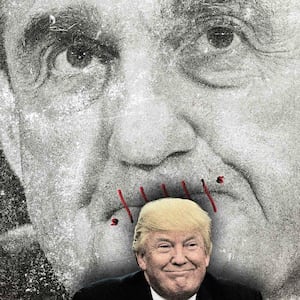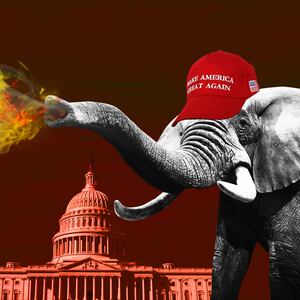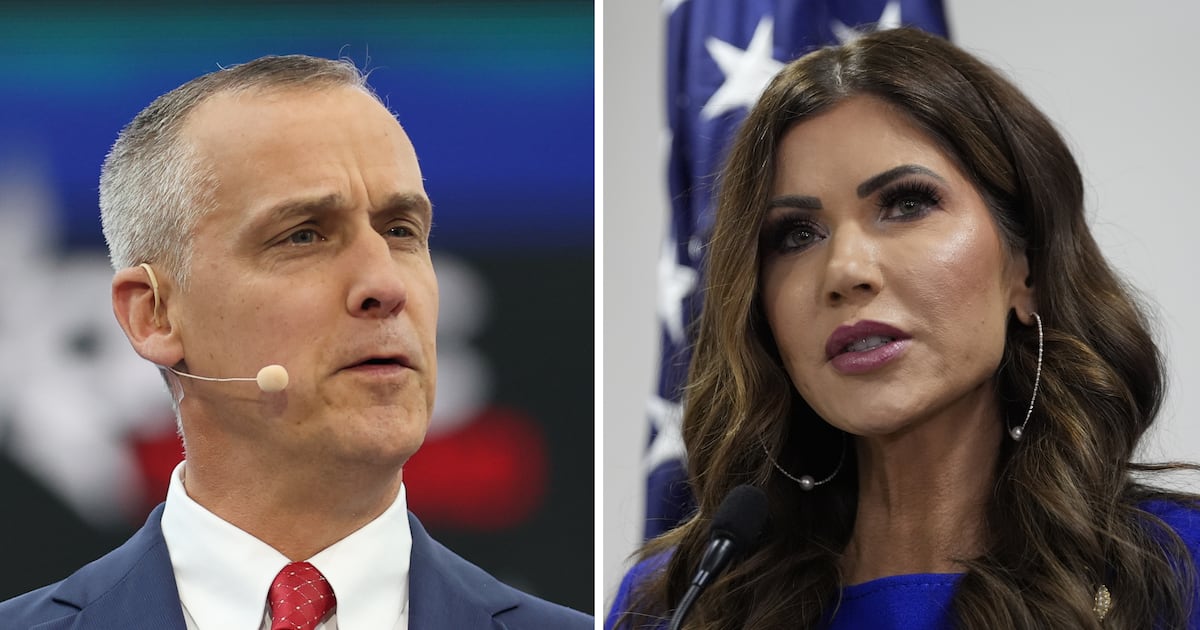The day after Attorney General William Barr released his summary of Robert Mueller’s report, congressional leaders wrote to him demanding access to the entire report, as well as the underlying evidence, so as to render an “independent assessment” of President Trump’s conduct. The attorney general should grant their request, but instead he may be inclined to fight them in much the same way Richard Nixon fought the special prosecutor 45 years ago.
Barr devoted several paragraphs of his own brief letter to Congress about the Mueller report to a discussion of barriers purportedly standing in the way of his “public” disclosure of all of Mueller’s evidence, primary among them the rule generally mandating that government maintain the confidentiality of evidence gathered in grand jury proceedings. But Barr notably avoided the question of whether and when the Mueller materials will be shared in their entirety, confidentially, with Congress.
This may be because Barr believes Mueller’s conclusion that the Trump campaign did not engage in a criminally prosecutable conspiracy with Russia, and Barr’s own self-generated exculpation of Trump of criminal liability for his extensive efforts to interfere with the investigation, obviate the need for Congress to conduct its own comprehensive review of the evidence. But they do not.
Barr’s opinion that Trump should be in the clear cannot substitute for a review by the legislative branch. The Constitution’s vesting of impeachment power in the Congress is the necessary corollary to the DOJ’s long-standing policy against indicting sitting presidents. As the most a memo explaining that policy states, the “constitutionally specified impeachment prescribed process” ensures that a president’s putative immunity from criminal charge “does not place the President ‘above the law.’” And Congress cannot carry out that constitutionally specified role to review potential presidential misconduct unless it has plenary access to all relevant evidence, including grand jury material.
Under the statute that governed Independent Counsel Ken Starr’s investigation of President Clinton, prosecutors were able to share grand jury evidence with Congress for just that purpose. But that law has since lapsed. Fortunately, as I explained in a recent piece, history offers another model. During the Watergate investigation, as the House Judiciary Committee was determining whether to vote in favor of proposed articles of impeachment against President Nixon, Congress requested access to the substantial body of evidence that the president had obstructed justice assembled by the office of the special prosecutor through its grand jury investigation.
To that end, Special Prosecutor Leon Jaworski’s staff prepared a document known as the “road map.” Unlike Barr, Jaworski did not include an advisory opinion regarding Nixon’s ultimate culpability, since the special prosecutor reasoned that it was wholly up to Congress to determine if Nixon’s similarly extensive efforts to interfere in an investigation merited impeachment. Instead, the road map was comprised of a spare, factual summary of evidence prosecutors had obtained regarding Nixon’s conduct, issued in the name of the grand jury, accompanied by the relevant documents.
After a formal request from Congress, the U.S. District Court in Washington (the same one where Mueller empaneled a grand jury) granted the House access to the materials, with Judge John Sirica stating that it would be “incredible” if evidence that law enforcement officers could access in a garden variety criminal investigation would be “unavailable to the House of Representatives in a proceeding of so great import as an impeachment investigation.” The D.C. Circuit appeals thereafter approved of Judge Sirica’s ruling. Over subsequent years, a number of other courts have similarly held that courts have the inherent authority to order the disclosure of grand jury materials on public policy grounds; indeed, one court has concluded that such disclosure is squarely permitted by governing rules in impeachment proceedings.
In their letter to Barr of yesterday, congressional leaders squarely followed the Watergate model by demanding access both to the full Mueller report, as well as the “underlying evidence and materials.” As they put it, “Congress must be permitted to make an independent assessment of the evidence regarding obstruction of justice,” and legislators cannot satisfy the obligation to “evaluate [Barr’s] determination that ‘the report identifies no actions’ that meet the elements of obstruction in the absence of the report, evidence and other materials.”
Given the existing precedent, one might expect the attorney general to freely accede to the Congress’ request, and himself ask the courts for permission to share the evidence, including grand jury materials, with the House. The matter should be all the less controversial given that Trump himself has unequivocally called for the release of the full report. But there is reason to believe that Trump’s professed interest in “transparency” may be short-lived.
Journalists are now reporting that White House staffers are attempting to walk back Trump’s previous call for full disclosure, and are increasingly signaling that Trump might even personally invoke executive privilege as a mechanism for keeping embarrassing portions of the report concerning presidential misconduct under wraps. In U.S. v. Nixon, the Supreme Court rejected the claim that executive privilege can be used to shield potentially criminal presidential misconduct from review. But Barr, during his last tenure in the Justice Department, including as attorney general under President George H.W. Bush, advocated employing aggressive theories of executive privilege and other doctrines to keep information from the prying eyes of Congress. Accordingly, we can expect Barr to be more than willing to back up this president in any battle to prevent Congress from obtaining full access to Mueller’s evidence.
Congress has demanded to obtain the full Muller report by April 2. It seems more than possible that Congress will have to go to the courts in order to compel disclosure of that document, as well as the evidence Mueller assembled; and the matter could then end up before the Supreme Court, just as the Nixon tapes case went before that court.
It was only after Nixon was compelled to disclose the tapes that the existence of the “smoking gun,” and with it the full scope of his efforts to interfere with the investigation, ultimately came to light. In his letter, Barr observed that Trump has engaged in many apparent efforts to interfere with the administration of justice in “public view,” and suggested that this somehow exculpates Trump from liability. In fact, the president’s audacious tendency to engage in potentially criminal conduct in public renders it all the more important for Congress to exercise its constitution authority to obtain full and complete disclosure of evidence regarding the misconduct Trump may have engaged in private.








